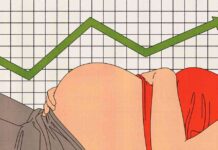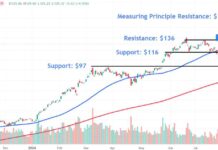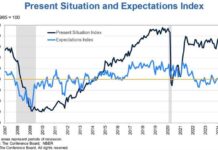Consumer confidence received a much-needed boost in August as lower inflation levels provided some relief to individuals grappling with rising prices. The Michigan Consumer Sentiment Index, a key measure of consumer attitudes and expectations, showed an improvement for the first time in five months. Economists believe this uptick is largely due to people finally feeling some reprieve from the pressures of high inflation.
Positive Signs for Consumers
The University of Michigan’s Index of Consumer Sentiment rose to 67.8 in August, marking a positive shift after a prolonged period of stagnation. Recent reports indicating a slowdown in inflation have contributed to this increase, with annual price hikes inching closer to the Federal Reserve’s target of 2%. This development has been welcomed by consumers who have been grappling with the impact of rising costs on their daily lives.
Commenting on the positive trend, Wells Fargo economists Tim Quinlan and Jeremiah Kohl noted, “Recent encouraging developments towards bringing inflation back into the FOMC’s target range have given consumers reason to be a bit more optimistic.” The Federal Open Market Committee (FOMC), the Fed’s policy-setting body, has maintained interest rates at high levels in an effort to combat inflation. As inflationary pressures ease, consumers are beginning to feel more hopeful about the economic landscape ahead.
Consumer Expectations and Inflation
The University of Michigan poll is known for its sensitivity to inflation readings, making it a valuable gauge of consumer sentiment in relation to price movements. Over the past year, consumers have been grappling with stubborn inflation, leading to pessimistic readings in previous surveys. However, the recent moderation in inflation has provided a glimmer of hope for consumers looking for some relief.
According to the latest data, consumers anticipate inflation to be around 2.9% a year from now, aligning with their predictions from the previous month. The Federal Reserve closely monitors consumer inflation expectations as these forecasts can influence both price setters and wage payers. By tracking consumer sentiment on inflation, policymakers can better assess the impact of price fluctuations on the broader economy.
Optimism for the Future
While consumers may have expressed concerns about current economic conditions, their outlook for the future appears to be more positive. Joanne Hsu, director of the University of Michigan’s Survey of Consumers, highlighted the strengthening of expectations for personal finances and the five-year economic outlook. This optimism is reflected in the survey results, with the five-year economic outlook reaching its highest reading in four months.
The improved sentiment among consumers underscores the importance of addressing inflationary pressures to restore confidence in the economy. As prices stabilize and inflation moderates, individuals are more likely to feel optimistic about their financial prospects and the broader economic environment. This shift in consumer sentiment bodes well for the overall health of the economy and sets the stage for continued growth and stability in the months ahead.
In conclusion, the recent uptick in consumer confidence driven by lower inflation levels signals a positive trend for the economy. As individuals feel some relief from the burden of rising prices, their outlook for the future strengthens, laying the foundation for sustained economic growth. By closely monitoring consumer sentiment and addressing inflationary pressures, policymakers can ensure a stable and prosperous economic environment for all.

















